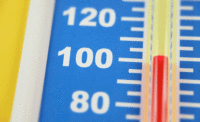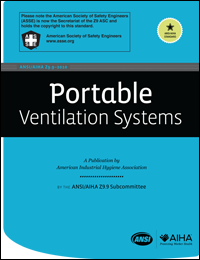More than 1.8 million employees in France (some 10 percent of all workers) are exposed to at least one carcinogenic on the job, according to a recent SUMER 2017 survey. SUMER is the acronym for the French “surveillance médicale des salariés aux risques professionnels”, i.e. the medical monitoring of employees’ exposure to occupational risks.
This was the fourth such survey to map work-related risks. The previous surveys were performed in 1994, 2003 and 2010 and provide comparisons and important information on the evolution of working conditions in France over a period of more than 20 years.
The percentage of employees exposed to carcinogens dropped significantly between 2003 and 2010 (going down from 13.8% to 9.4%). Since then however, it has remained at the same level or even increased slightly, and there has been an increase in the construction sector.
Not enough time to do work properly
While exposure to the majority of physical risks has gone down (with the exception of noise), work intensity remains high, with 66% of employees stating that they are called on to work very fast, 35% stating that they have excessive workloads and 30% saying that they do not have sufficient time to do their work properly.
Work intensity and autonomy have changed, according to the study. Workers see themselves less controlled directly by line management and more by IT systems. In 2017, 42% of employees said that they had no influence over set deadlines, against 35% in 2003.
As with the previous surveys, SUMER reveals major differences among private sector employees. For instance, shift work affects just 2.8% of managerial staff, but 22% of unskilled workers. 1.7% of managerial staff are exposed to at least three chemical products, compared to 32.7% of skilled workers.
Prevention lacking
As of 2010, SUMER also includes questions on prevention practices in companies. The results show that the majority of employers are not complying with basic prevention rules, a situation. Of all employees working in the private sector, around one-half benefit from a health & safety committee. In companies with less than ten employees, the existence of an elected staff representation body is the exception, with just 14.5% of employees concerned mentioning such. Looking at all companies, 27.7% of employees state that a prevention plan has been implemented on the basis of a risk assessment, a percentage down four percentage points against 2010. When a health & safety committee exists, the proportion of employees with a risk assessment document compiled or updated within the past twelve months is much higher (66%) than when there is no such committee (16%).
The 2017 SUMER survey was conducted on the ground between April 2016 and September 2017. Taking part on a voluntary basis, 1,243 occupational health doctors randomly selected 33,600 employees. 26,500 questionnaires were usable, 98% of which were accompanied by a self-assessment questionnaire. Respondents were representative of France’s 25 million employees. SUMER is one of the widest surveys on working conditions conducted at national level.
Source: ETUI







